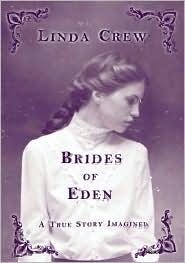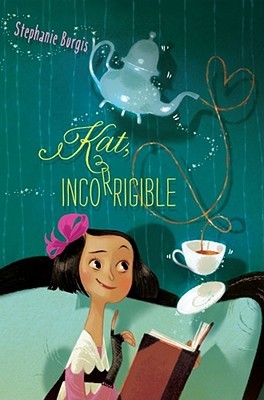Synopsis: When Gabriele comes to Florence to make his fortune, he has no idea that his face and body will become the most famous in the world, stared at and admired by millions of people for hundreds of years. But when your brother is Michelangelo, things like that can happen . . .
At first, though, being asked to pose for the statue of David is the least exciting thing that happens to Gabriele as he begins his new life. There's romance - thrilling romance, with a forbidden woman who has an agenda if her own. And there's danger. The Florence of 1501 is a divided city, where rival factions fight for control, and no one can be trusted. Recruited to serve as a spy, Gabriele finds himself over his head in a web of deadly intrigue. And when the statue of David becomes the focal point for a violent dispute that threatens to tear the city apart, Gabriele must fight to protect one of the greatest masterpieces the world has ever known.
Review: This book is probably considered an edgy read, and it is certainly not without its content. Gabriele is an all-out womanizer and sleep-around. He's in Florence for one day and he's already found his way into a woman's bed, and she isn't the last. Thankfully, his interests stop at women, but there are plenty of men to make googly-eyes at him, as well, and the Author doesn't shy away from stating that fact. One patron specifically asks a painter to use Gabriele as his nude model because he (the patron) likes to look at Gabriele. And of course, there are lots of references to nudity - it's pretty unavoidable, honestly; David is about Michelangelo's famous statue, who wears not a stitch. But don't be alarmed, Readers - while the book is certainly abounding with sexual references, the Author handles it all with remarkable discretion, hinting and describing in the fewest words possible, therefore making it a book which is readable rather than just downright trashy. Mary Hoffman never gets explicit. There is an underlying wrongness, as with the movie The Talented Mr. Ripley, but it's fairly easy to ignore.
What's probably most remarkable is despite all of Gabriele's shortcomings, he still manages to be a somewhat likable character. This is probably because he actually expresses regret over his actions as a young man, and when one of the ladies becomes heavy with his child, Gabriele shows genuine care and concern for his son. In any case, this is a book you read not for the characters, but for the story itself. My above paragraph has probably led you to believe that this book is about nothing but various peoples finding Gabriele attractive, but David, in fact, has a very complicated political storyline, seeing as Florance was positively turbulent with warring family factions in that era, and while some of the Florentine politics are confusing at first, it makes the book well worth reading, as Gabriele becomes embroiled in the city's tensed state, and an artist's work becomes more than just something pretty to look at, but a political statement.
David is certainly not a book for everyone because if its sexual alludements, and if there hadn't been the political-upheaval storyline, the fact that Gabriele does in fact regret his actions, and the Author never becomes explicit, I probably would not have finished it. But for those people who can appreciate a book merely for its story, and be okay with not really having any likable characters, you'll enjoy David.
Overall Rating: {{{{











